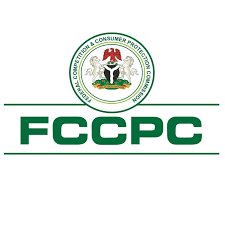The Federal Competition and Consumer Protection Commission (FCCPC) of Nigeria has released a comprehensive report detailing consumer complaints received between March and August, revealing a significant surge in grievances related to financial services, particularly banking and fintech. The report, covering 30 sectors of the Nigerian economy, highlights the challenges faced by consumers in accessing essential services and underscores the FCCPC’s intensified efforts to protect consumer rights and ensure fair market practices. Over this six-month period, the Commission received a staggering total of over 10,000 complaints, resolved over 9,000 cases, and recovered over N10 billion for aggrieved consumers, demonstrating the scale of consumer detriment and the Commission’s effectiveness in addressing it.
The banking sector emerged as the leading source of consumer complaints, accounting for 3,173 cases. This was closely followed by fast-moving consumer goods (FMCG) with 1,543 complaints, fintech with 1,442, and electricity with 458. Other notable sectors with substantial complaint volumes included e-commerce (412), telecommunications (409), retail/wholesale (329), aviation (243), information technology (131), and road transport/logistics (114). The dominance of banking and fintech complaints underscores the increasing reliance on digital financial services and the associated challenges consumers face, such as unfair charges, unauthorized deductions, and transaction disputes. This trend aligns with the FCCPC’s recent focus on regulating the digital lending sector to curb exploitative practices.
The report delves into the nature of consumer grievances across various sectors. In the banking and fintech space, complaints primarily revolved around loan deductions, unfair charges, and transaction disputes. The electricity sector witnessed persistent billing disputes and poor service delivery, mirroring long-standing challenges in the industry. E-commerce complaints, though lower in value compared to financial services, highlighted recurring issues with refunds, deliveries, and counterfeit goods. This spectrum of complaints reflects the diverse consumer protection challenges present in the Nigerian market, demanding a multifaceted approach from the FCCPC.
The FCCPC’s recovery of over N10 billion for consumers signifies the substantial financial impact of these grievances and the Commission’s effectiveness in securing redress. This figure represents the cumulative value of refunds, compensations, and other forms of financial relief provided to consumers who successfully lodged complaints with the Commission. The substantial recoveries underscore the importance of consumer advocacy and regulatory intervention in protecting consumer rights and promoting fair business practices. The Commission emphasizes its commitment to continuing its monitoring, enforcement, and collaborative efforts with other regulators, particularly in the financial services and utilities sectors where consumer vulnerabilities remain high.
The publication of this sector-specific complaint data is in line with the FCCPC’s statutory mandate to enforce consumer protection laws and promote transparency by making information on its functions publicly available. This data not only provides valuable insights into consumer experiences but also aids in identifying systemic issues within specific sectors, enabling the Commission to take targeted enforcement actions and formulate effective regulatory strategies. The FCCPC encourages consumers to continue reporting complaints through its dedicated online portal, as each report contributes to identifying and addressing widespread problems and ensuring compliance with consumer protection laws.
Mr. Tunji Bello, the Executive Vice Chairman/Chief Executive Officer of the FCCPC, emphasized that the figures represent more than just statistics; they reflect the daily struggles faced by Nigerian consumers in accessing essential services. He reiterated the Commission’s commitment to holding businesses accountable, ensuring compliance with the Federal Competition and Consumer Protection Act (FCCPA), and fostering fair market practices that safeguard the welfare of all consumers. The FCCPC’s proactive approach to consumer protection, coupled with its robust enforcement mechanisms, aims to create a more equitable and transparent marketplace for Nigerian consumers. The Commission’s efforts highlight the critical role regulatory agencies play in balancing the interests of businesses and consumers, promoting economic growth while ensuring consumer welfare.














